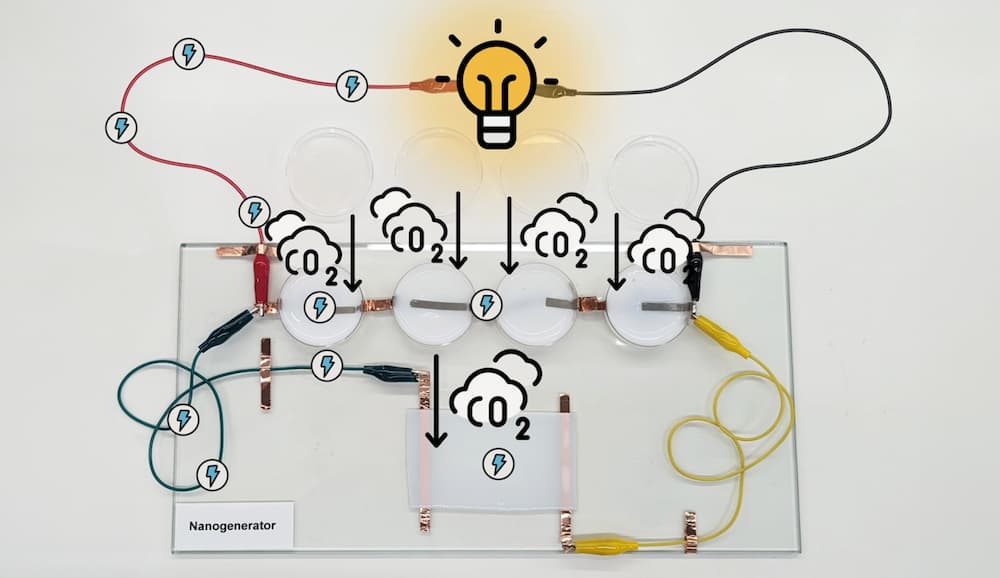
(Photo: UQ News)
Australian researchers have built an electrical generator that consumes carbon dioxide, produces electricity, and emits no exhausts. They believe this technology could revolutionize industrial-scale carbon capture method.
The carbon-negative "nano-generator" was constructed by the Dow Centre for Sustainable Engineering Innovation at the university. The prototype device utilizes a poly amine gel to absorb CO2 and generate an electrical current.
The research team acknowledges the technology requires further development and refinement but believes it could significantly limit global emissions.
Zhuyuan Wang, researcher from the University of Queensland, said, “We actually just finished the proof of concept that proves this can work but the current power density and efficiency is not high enough to compete with other energy sources, like solar panel[s], like the wind turbine.”
Researchers hope the prototype could have industrial applications, such as helping power plants reduce their emissions, as well as being scaled down for use in homes.
Nonetheless, the Climate Council, an Australian advocacy organization, argues that CCS technology "has not been trialed and tested anywhere in the world at the scale required to tackle the climate crisis."
Australia ranks as the world's 14th highest emitter, contributing just over 1% of global emissions. But it has some of the highest per capita emissions globally. While coal and gas currently dominate Australia’s electricity generation, there's a growing shift towards solar and wind energy, leading an energy transformation.
The Climate Council points out that nearly a third of Australia’s energy is renewable and is projected to soon reach 50%.


